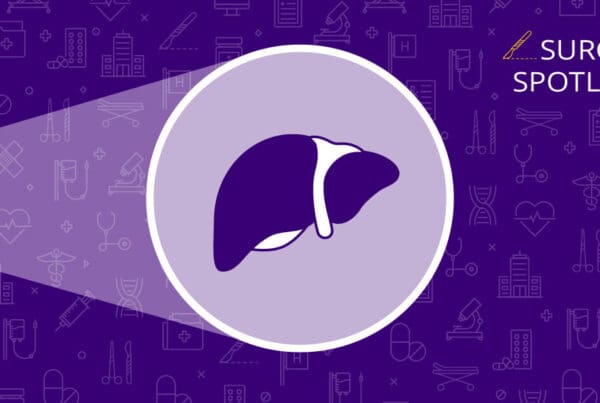Highlights | Meeting men where they’re at
- June is Men’s Health Month.
- The UW Medicine Men’s Health Center takes a multidisciplinary approach to address men’s health concerns and partners with primary care providers.
- The Center also prioritizes community engagement to increase men’s health awareness.
To maintain good health, doctor appointments for routine and acute care are a top priority. But scheduling those visits isn’t at the top of everyone’s to-do list. And compared to women, men are more likely to put off checkups and seek needed medical care. As a result, many of the health risks that men face could be prevented or treated early if diagnosed sooner.
UW Medicine stepped in to combat this disparity and make it easier for men to access the medical services they need to stay healthy. Through the Men’s Health Center at UW Medical Center – Roosevelt, providers address some of the most pressing health concerns of male patients.
“Men only access healthcare at levels similar to women when they are teenagers, and their parents make appointments for them,” says Thomas Walsh, MD, MS, urologist and director of the Men’s Health Center. “We founded the Men’s Health Center to create a place that focuses on benign male healthcare needs — to draw them in and get them more involved in their own healthcare.”
A comprehensive clinic
UW Medicine launched the Men’s Health Center in 2013. It focuses on treating the urologic, sexual, hormonal and reproductive problems male patients can encounter. Together, urologists, endocrinologists, internists and lab experts concentrate on the patient’s symptoms. They also address any underlying root causes, such as cardiovascular disease, diabetes, cancer and mental health concerns.
“We’ve assembled a multidisciplinary approach to care that offers diagnostic testing and a full spectrum of care from medical treatments to surgeries to counseling,” Walsh says. “We’ve become a place for definitive care.”
Along with delivering care for male urinary symptoms, our specialists use penile duplex ultrasound to detect existing vascular problems that may cause erectile dysfunction. This diagnostic imaging leads to better treatment decisions. Our surgeons also conduct penile prosthetic procedures to help restore the patient’s sexual function.
Partnerships for better health
Walsh says the medical benefits to patients extend beyond the Center’s specific services. Nearly half of the patients arrive without a relationship with a primary care provider. While addressing other needs, Center providers can connect men with primary care physicians to get routine healthcare.
“By opening our doors and creating a vetted and trusted environment where men can feel comfortable sharing their personal concerns, we can connect them to better care in general,” he says. “Now I make a simple referral to establish a primary care relationship almost every day.”
Walsh refers at least 10% of his patients to primary care. However, Center clinicians also take the opportunity to educate patients about their routine care needs.
“It’s surprising how few men know the connection between coronary artery disease and diabetes and any loss of libido or sexual function,” he says. “So, we take the time to help them understand blood pressure control, diabetes and cholesterol.”
Our specialists address other important health services, including prostate and colon cancer screenings. And they emphasize the importance of healthy behaviors such as physical exercise, a nutritious diet and mental health therapy.
Creating more diverse care
Along with creating a comprehensive clinical experience, UW Medicine is committed to creating more diverse care teams, says Marah Hehemann, MD, urologist and assistant professor in the Department of Urology at the UW School of Medicine.
“The urologic workforce does not reflect the ethnic makeup of the United States and lags behind other surgical subspecialties with regard to diversity,” Hehemann says. “One of my goals is to be a role model for individuals from underrepresented backgrounds to enter into this field.”
Until recently, only 10% of practicing urologists were women, and only 6.5% were from underrepresented minority groups. The proportion of women subspecializing in Andrology, which focuses on men’s health and in particular, male reproductive issues, is even smaller. However, through its recruitment efforts, UW Medicine’s Andrology fellowship program is changing the face of the specialty. For the fellowship class of 2024, 18 applicants — 35% — are women.
“It’s an exciting time to see the number of women in this specialty growing,” she says. “Women are uniquely positioned to treat men. On average, women physicians take longer talking with patients which can be helpful when providing care around sensitive topics like sexual dysfunction, infertility and quality of life.”
Embracing community engagement
Reaching out to the community is a big part of patient education. And engagement and community awareness have been a focus of the Center since its doors opened, Walsh says.
“When we founded the Center, we wanted to do something different,” he says. “We convened a community advisory board of former patients, community leaders, community organizers and healthcare system leaders to help us determine what services we need to provide.”
Since then, the 22-member community board has expanded the Center’s efforts to raise community awareness. The group plans community events around various health topics and sponsors a healthcare-related radio show on iHeartMedia. They will also plan continuing medical education events around men’s health awareness for providers.
Ultimately, Walsh says, the Center providers aim to improve the health of male patients. They strive to either address a patient’s needs directly or connect them with a clinician who can.
“Even if a patient has a problem that we don’t specialize in,” he says, “we can work together or direct them to someone who has seen it before and treated it.”


